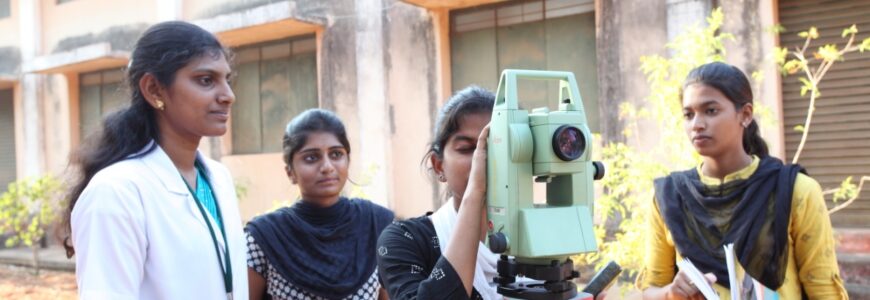
Department of Civil engineering of TCE was established in the year 1984. It is one among the oldest departments in the Non-Grant engineering institutions in the state of Tamilnadu. The department is well equipped with excellent academic facilities and is led by qualified faculty having immense teaching and industrial exposure. The department has well equipped lab facilities and has infrastructural facilities for carrying out various tests on all building materials, soil and water samples. As an exemplary centre, the department offers extensive consultancy services like topographical survey including contouring, analysis and design of concrete and steel structures, water sample analysis and building materials testing for many private,state and central government organizations. The department is still continuing its successful journey, with the motto of producing eminent civil engineers for the society.
Graduates will be able to


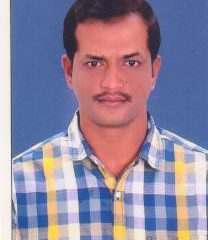
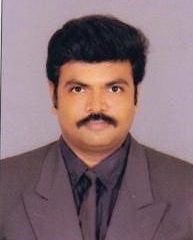

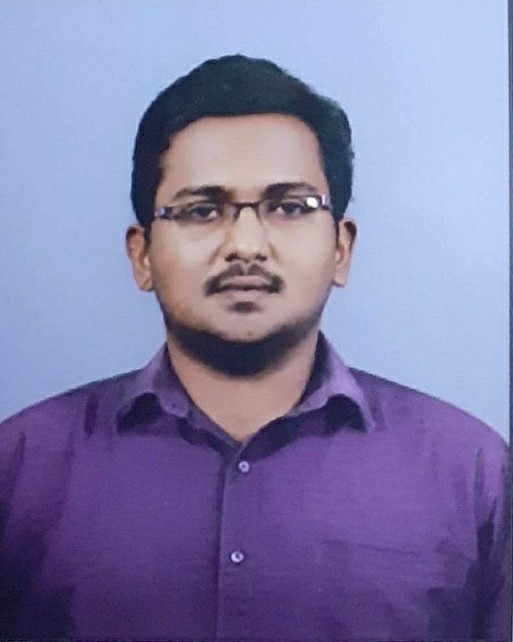
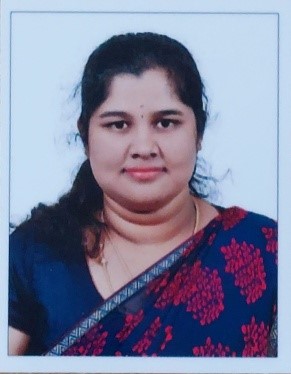


| S.NO | STUDENT NAME | NAME OF THE COLLEGE | NATURE OF THE EVENT | DATE | PARTICIPATION/ PRIZE |
| 1 | MANIKANDAN V | SREE SAKTHI ENGINEERING COLLEGE, COIMBATORE | PAPER PRESENTATION | 25.02.2023 | PARTICIPATED |
| 2 | MANOJ KUMAR S | SREE SAKTHI ENGINEERING COLLEGE, COIMBATORE | PAPER PRESENTATION | 25.02.2023 | PARTICIPATED |
| 3 | AJAY KUMAR K | SREE SAKTHI ENGINEERING COLLEGE, COIMBATORE | SPELLBEE AND BUIL ZONE | 25.02.2023 | 2ND PRIZE |
| 4 | HARISHKANNAN N | SREE SAKTHI ENGINEERING COLLEGE, COIMBATORE | SPELLBEE, BUIL ZONE AND PHOTOGRAPHY | 25.02.2023 | PARTICIPATED |
| 5 | SRI GAYATHRI | SREE SAKTHI ENGINEERING COLLEGE, COIMBATORE | SPELLBEE AND BUIL ZONE | 25.02.2023 | 1ST PRIZE |
| 6 | SUBRAMANIAM N | KUMARAGURU COLLEGE OF TECHNOLOGY, COIMBATORE | TECHNICAL QUIZ | 16.09.2022 | PARTICIPATED |
| 7 | AJMEER S | KUMARAGURU COLLEGE OF TECHNOLOGY, COIMBATORE | TECHNICAL QUIZ | 16.09.2022 | 3RD PRIZE |
| 8 | NAVEENDDRRAN D | KUMARAGURU COLLEGE OF TECHNOLOGY, COIMBATORE | TECHNICAL QUIZ | 16.09.2022 | 2ND PRIZE |
| 9 | RAGHUL ROHIT M G | KUMARAGURU COLLEGE OF TECHNOLOGY, COIMBATORE | TECHNICAL QUIZ | 16.09.2022 | PARTICIPATED |
| 10 | ALAGUDURAI T | KUMARAGURU COLLEGE OF TECHNOLOGY, COIMBATORE | TECHNICAL QUIZ | 16.09.2022 | PARTICIPATED |
| 11 | SURYANARAYANAN V.K | SRI RAMAKRISHNA INSTITUTE OF TECHNOLOGY | PAPER PRESENTATION | 19.02.2020 | 1ST PRIZE |
| 12 | SURYANARAYANAN V.K | JAI SRI RAM ENGINEERING COLLEGE | PAPER PRESENTATION | 10.02.2020 | PARTICIPATED |
| 13 | NIHAL P.A | SRI RAMAKRISHNA INSTITUTE OF TECHNOLOGY | PAPER PRESENTATION | 19.02.2020 | 1ST PRIZE |
| 14 | NIHAL P.A | JAI SRI RAM ENGINEERING COLLEGE | PAPER PRESENTATION | 10.02.2020 | PARTICIPATED |
| 15 | SURYANARAYANAN V.K | SRI RAMAKRISHNA INSTITUTE OF TECHNOLOGY | CLASH OF CADD | 19.02.2020 | PARTICIPATED |
| 16 | NIHAL P.A | SRI RAMAKRISHNA INSTITUTE OF TECHNOLOGY | CLASH OF CADD | 19.02.2020 | PARTICIPATED |
| 17 | SURYANARAYANAN V.K | JAI SRI RAM ENGINEERING COLLEGE | TECHNICAL QUIZ | 10.02.2020 | PARTICIPATED |
| 18 | NIHAL P.A | JAI SRI RAM ENGINEERING COLLEGE | TECHNICAL QUIZ | 10.02.2020 | PARTICIPATED |
| 19 | AMAL ARAVIND | SRI RAMAKRISHNA INSTITUTE OF TECHNOLOGY | PAPER PRESENTATION | 19.02.2020 | PARTICIPATED |
| 20 | FRANKLIN V | SRI RAMAKRISHNA INSTITUTE OF TECHNOLOGY | PAPER PRESENTATION | 19.02.2020 | PARTICIPATED |
| 21 | AMAL ARAVIND | SRI RAMAKRISHNA INSTITUTE OF TECHNOLOGY | CLASH OF CADD | 19.02.2020 | PARTICIPATED |
| 22 | FRANKLIN.V | SRI RAMAKRISHNA INSTITUTE OF TECHNOLOGY | CLASH OF CADD | 19.02.2020 | 1ST PRIZE |
| 23 | AMAL ARAVIND | KONGU COLLEGE OF ENGINEERING | PAPER PRESENTATION | 29.02.2020 | PARTICIPATED |
| 24 | FRANKLIN.V | KONGU COLLEGE OF ENGINEERING | PAPER PRESENTATION | 29.02.2020 | PARTICIPATED |
| 25 | FRANKLIN.V | KONGU COLLEGE OF ENGINEERING | PRINT IT BLUE | 29.02.2020 | 3RD PRIZE |
| 26 | KAVIYARASU | JAI SRI RAM ENGINEERING COLLEGE | TECHNICAL QUIZ | 10.02.2020 | PARTICIPATED |
| 27 | K.KAVIN | Coimbatore institute of technology | Workshop | 07.09.2019 | PARTICIPATION |
| 28 | RAJASEKAR J P | Coimbatore institute of technology | Workshop | 07.09.2019 | PARTICIPATION |
| 29 | SILAMBARASAN D | Coimbatore institute of technology | Workshop | 07.09.2019 | PARTICIPATION |
| 30 | BHUVANANESARAN D | Jansons institute 0f technology | ENGINEERING GRAPHICS | 18.09.2019 | PARTICIPATION |
| 31 | ELAKYA K | Jansons institute 0f technology | ENGINEERING GRAPHICS | 18.09.2019 | PARTICIPATION |
| 32 | NISHANTH P | Sri krishna college of engineering | SHORT FILM | 09.10.2019 | PARTICIPATION |
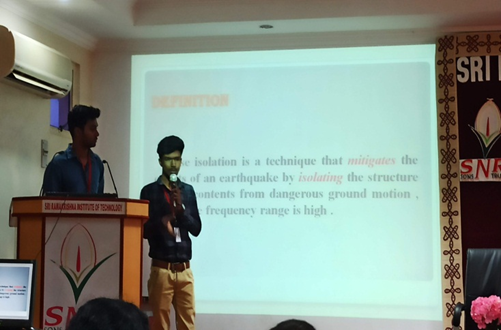
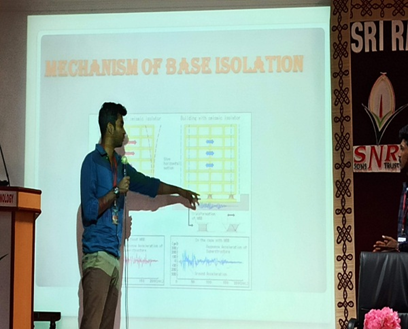
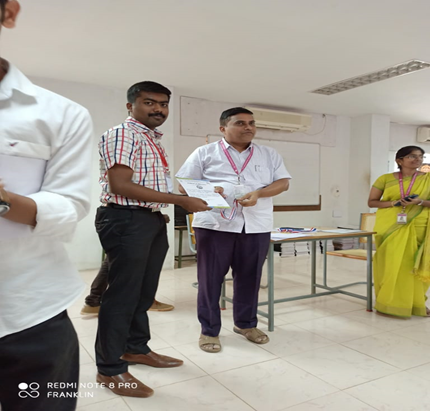
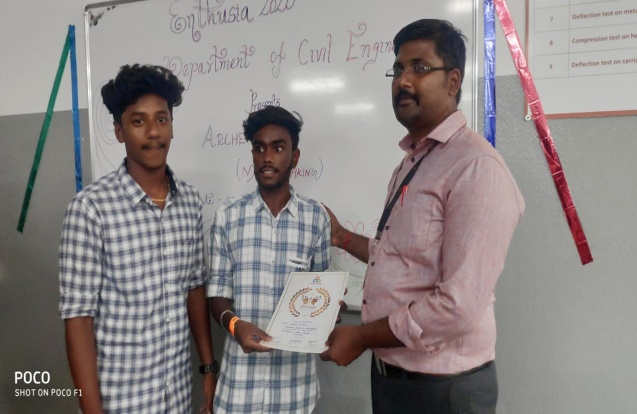
| S.NO | STUDENT NAME | NAME OF THE COLLEGE | NATURE OF THE EVENT | DATE | PRIZE |
|---|---|---|---|---|---|
| 1 | G.Sivamanikandan | CIT | National level workshop | 11/8/17 | Participation |
| 2 | S.Muniyasami | CIT | National level workshop | 12/8/17 | Participation |
| 3 | Venkatesh G | TCE | Two day workshop | 9/2/2017 | Participation |
| 4 | Sujai R | GCE,Salem | National conference | 1-2/3/2017 | Participation |
| 5 | Subin Varghese | ||||
| 6 | G.Sivamanikandan | Kings college of engiuneering | National level symposium | 1/9/2017 | Participation |
| 7 | Vishnupriya R | TCE | Workshop | 28/2/2017 | Participation |
| 8 | Vishnupriya R | KPR | National level workshop cum hands on training | 10-11/2/2017 | Participation |
| 9 | Vishnupriya R | M Kumarasamy college of engineering | National level workshop | 9/2/2017 | Participation |
| 10 | Prem Rishikkha P | TCE | National level workshop | 28/2/2018 | Participation |
| 11 | M I Mohamed Thanveer | Bannari Amman Institute of Technology | National level workshop | 20/2/2018 | Participation |
| 12 | Akshaya Kumaran V I | Bannari Amman Institute of Technology | National level workshop | 20/2/2018 | Participation |
| 13 | S Vignesh | Bannari Amman Institute of Technology | Paper presentation | 20/2/2018 | Participation |
| 14 | Akshaya Kumaran V I | GCE,Salem | National level workshop | 10/3/2018 | Participation |
| 15 | M Deepakani | ||||
| 16 | B Kokila | ||||
| 17 | M Gunavathi | ||||
| 18 | S Sukumar & R Mirmal | PSG itech | National level workshop | 9/3/2018 | Participation |
| 19 | R Vishnupriya | CIT,Coimbatote | National level technical symposium | 23/2/2018 | Participation |
| 20 | R Vishnupriya | CIT,Coimbatote | Brick bonding | 23/2/2018 | Participation |
| 21 | B Inthirani | School of Engineering,Ambal Professional Group of Institutions | International conference | 27-28/03/2018 | Participation |
| A S Karthikeyan | |||||
| S Manoj | |||||
| G Venkatesh | |||||
| Nandhini K | |||||
| Sujai R | |||||
| Subin Varghese | |||||
| Kharvarnnan S S |
The Civil engineering department has well equipped laboratories which provides good facilities for teaching, field testing and research works in civil engineering. The laboratories have been set up to enable students to use the techniques, skills and modern engineering tools necessary for engineering practice. The following laboratories are part of the Civil Engineering Department
Survey lab serves to provide practical training and insight about basic surveying applications including plane surveying, and supports the advanced surveying courses as well. The basic level topics include compass survey, plane table survey, leveling and theodolite survey. Training is imparted in advanced surveying tools like total station survey as well.
The Geotechnical Engineering laboratory is well equipped to execute all the necessary soil tests. It consists of several equipments for testing the various parameters of soil like CBR test, Direct Shear test, Vane Shear test, Unconfined compression test, Triaxial compression test, Consolidation test, Permeability test, Compaction test, Consistency limit tests etc. The various test informations are used for designing the type of foundations, earthworks such as dams, embankments, tunnels, reservoirs, pavement subgrades etc. Thus this lab helps the students in understanding the concept of geotechnical engineering in detail.
Strength of Materials laboratory familiarizes the students with the testing procedure of materials used in the civil engineering discipline. The laboratory facilities gives a clear understanding of the behaviour of the materials through the study of physical properties, mechanical properties, suitability of material for use in construction, material selection code provisions, etc. The material testing laboratory is designed also to serve the research works for both faculty and students.
The computer centre is equipped with sophisticated software facilities for training students in areas of computer aided design, structural design and project planning. This lab deals with the study of various distinctive features and tools used in AutoCAD and the uses of this software in Civil engineering. The centre is actively used for the research work also.
Transportation and highway engineering laboratory provides a platform for the students for practical implementation of Transportation engineering projects, thereby uplifting the standards of the students to industrial level. Testing facilities are provided for materials used in highway-pavement construction. The laboratory is well equipped with latest instruments with advanced testing facilities.
The Environmental Engineering lab helps to acquaint students with the details of water and wastewater analysis, and to provide hands-on experience in the operation and performance of traditional and innovative systems for water and wastewater treatment. The lab is well equipped with all testing apparatus and instruments.
This lab provides facilities for testing structural aspects of elements in a building including practical behavior of the physical structures like beams, different arches, roof truss etc. It helps the post graduate students to gain concrete idea about their research areas and to bring out the best results.
This Lab is intended to make the students aware of the all the aspects which comes under fluid flow. The experiments include flow measurement, practical applications of the basic principles of fluid mechanics and the study of major tools used.
Engineering practices lab is a learning arena for first year students to understand the basic engineering principles and ideas through practical exercises. The well equipped facilities in both civil and mechanical workshops provide the students with best opportunities to have hands-on training and thereby to gain engineering skills right from their first year of study.










The Civil engineering department library occupies a unique place in academic and research activities of the department. It is perhaps one among the most important academic facilities provided by the Institute. The library is well equipped with around 1500 titles and 2000 volumes and maintains an excellent collection of data books, more that 20 journal subscriptions and other research documents/materials. The Library has a well equipped facility for reading.
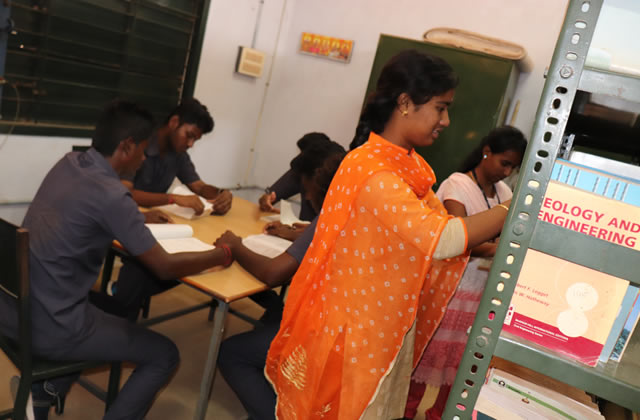

| S.NO | DATE | EVENT | TOPIC | CONDUCTED BY |
|---|---|---|---|---|
| 1 | 08.02.2023 | SEMINAR | IMPORTANCE OF A REVIEW PAPER PUBLISHES IN RESEARCH | Dr.P.MAGUDEASWARAN ADITHYA INSTITUTE OF TECHNOLOGY |
| 2 | 19.01.2023 | GUEST LECTURE | PERMANENT WAY CONSTRUCTION | R.RAGAVAN, CONSULTANT ENGINEER, BANGALORE METRO |
| 3 | 15.11.2022 | WORKSHOP | 3 15.11.2022 WORKSHOP WORKSHOP ON ADVANCED BUILDING MATERIALS J.P.GOBINATH J.P.G CONSTRUCTION,COIMBATORE | 3 15.11.2022 WORKSHOP WORKSHOP ON ADVANCED BUILDING MATERIALS J.P.GOBINATH J.P.G CONSTRUCTION,COIMBATORE |
| 4 | 30.09.2022 | TECH AMALGAM 22 | ASSOCIATION INAUGURAL FUNCTION | Er.ARUNKUMAR KRISHNASAMI DATA ARCHITECT, ACCENTURE TECHNOLOGY, BANGALORE |
| 5 | 25.08.2022 | SEMINAR | GREEN BUILDING WITH AI TECHNIQUES | R.UDHAYASANKAR, B.T.R CONSTRUCTION |
| 6 | 24.11.2021 | GUEST LECTURE | SUSTAINABLE MATERIALS IN CONSTRUCTION | S.PON VINOTH, QUALITY ENGINEER, TEAM LEAD SGS Pvt,LTD, Tiruppur |
| 7 | 17.08.2019 | SKEPPERS 2K19- Association inaugural function And Guest lecture | RECENT ADVANCE IN CIVIL ENGINEERING | Er. K.CHANDRASEKER CLASSIC BUILDERS,COIMBATORE |


| S.NO | Topic | Course coordinator | Technical person | No. Of students attended | Academic year | Semester | Duration(hours) |
|---|---|---|---|---|---|---|---|
| 1 | STAAD Pro,AutoCADD and structural detailing | Prof.L.Periyasamy | R.UDHAYASANKAR | 39 | 2022-2023 | 2,4,6,8 | 48 Hours |
| 2 | STAAD Pro and ETABS | Dr.V.KAVIMANI | R.UDHAYASANKAR | 42 | 2022-2023 | 1,3,5,7 | 40 Hours |


Civil Engineering students are studying many subjects which are often limited to class room environment. This kind of regular studies is not sufficient to meet the current trends and industrial requirements. By considering these facts, the department has taken initiative to undergo value added courses related to the core disciplines of Civil engineering to enhance the technical knowhow of the students.
In order to strengthen the teaching learning processand to prepare the undergraduate students to meet the challenges of the global work environment, Civil Engineering department offersclose interaction with the industry to bridge the gap between the curriculum and the requirement of the industry.
Value added courses aims to provide additional learner centric graded skill oriented technical training with the primary objective of improving the employability skills of the students and also to provide an opportunity to the students to develop interdisciplinary skills.
| SEM | SUBJECT CODE | SUBJECT NAME | COURSE OUTCOME No. | COURSE OUTCOMES |
|---|---|---|---|---|
| V | CE8501 | DESIGN OF REINFORCED CEMENT CONCRETE ELEMENTS | CO1 | Illustrate the criteria specified in various methods for designing of different types of reinforced concrete elements. | CO2 | Analyze the working stress method and use it for the design of beams and slabs |
| CO3 | Compute the design parameters with respect to bond, anchorage, shear and torsion | |||
| CO4 | Design of beams and slabs as per the codal guidelines | |||
| CO5 | Design of Columns and Footings by using limit state method. | |||
| V | CE8502 | STRUCTURAL ANALYSIS I | CO1 | Analyze continuous beams, pin-jointed indeterminate plane frames and rigid plane frames by strain energy method |
| CO2 | Analyse the continuous beams and rigid frames by slope defection method. | |||
| CO3 | Understand the concept of moment distribution and analysis of continuous beams and rigid frames with and without sway. | |||
| CO4 | Analyze the indeterminate pin jointed plane frames continuous beams and rigid frames using matrix flexibility method. | |||
| CO5 | Understand the concept of matrix stiffness method and analysis of continuous beams, pin jointed trusses and rigid plane frames. | |||
| V | EN8491 | WATER SUPPLY ENGINEERING | CO1 | Estimate the total water demand for a town/city and identify suitable sources of water and intake structures to meet the demand |
| CO2 | Prepare the physical, chemical and biological characteristics of water and compare it with the standards | |||
| CO3 | Select & design the conduits and pumps for the transportation of water | |||
| CO4 | Design a suitable basic and advanced treatment system for the available source of water | |||
| CO5 | Design a good water distribution system for an individual building and for a community | |||
| V | CE8591 | FOUNDATION ENGINEERING | CO1 | Discuss the methods of subsoil investigation, sampling techniques and bore log report preparation |
| CO2 | Determine the bearing capacity of the soil by interpreting the bore log data to decide the depth, type and probable settlement of foundation | |||
| CO3 | Compute the load and dimensions of various shallow foundations in normal and seismic conditions | |||
| CO4 | Estimate the load carrying capacity of pile foundation and probable settlement of pile group in granular and cohesive soil | |||
| CO5 | Verify the stability of retaining structures by evaluating the active and passive pressure of soil | |||
| V | GE8071 | DISASTER MANAGEMENT | CO1 | Discuss the types of disasters, causes and their impact on environment and society |
| CO2 | Assess vulnerability and various methods of risk reduction, Institutional framework and mitigation. | |||
| CO3 | Identify the hazard, impact of developments, Climate change associated disaster. | |||
| CO4 | Express disaster risk management by understanding Disaster Relief, GIS/Information Technology and Disaster Management Act. | |||
| CO5 | Construct Hazard Zonation map, Vulnerability Assessment, Drought Assessment, Storm Surge Assessment report and perform field works related to disaster management. | |||
| V | OAI551 | ENVIRONMENT AND AGRICULTURE | CO1 | Discuss the Land use and landscape changes |
| CO2 | Assess agricultural drainage and downstream impacts | |||
| CO3 | Identify the changing blue-green-grey water cycles | |||
| CO4 | Verify the GM crops and their impacts on Environment | |||
| CO5 | Analyse the Agricultural Environmental policies and its impaacts | |||
| V | CE8511 | SOIL MECHANICS LABORATORY | CO1 | Determine the index and engineering properties of soils to characterize it |
| CO2 | Compute the properties of soil in field and lab | |||
| CO3 | Verify the soil as cohesive or cohesionless | |||
| V | CE8512 | WATER AND WASTE WATER ANALYSIS LABORATORY | CO1 | Analyse the physical and chemical characteristics of water and wastewater |
| CO2 | Estimate the chemical dosage required for water treatment | |||
| CO3 | Analyse the biological characteristics of water and wastewater | |||
| V | CE8513 | SURVEY CAMP | CO1 | Compute the cross-sectional area by applying levelling concept and plot the cross-section, longitudinal sections and contours. |
| CO2 | Calculate the given area of site by using total station and GPS. | |||
| VI | CE8601 | DESIGN OF STEEL STRUCTURAL ELEMENTS | CO1 | Understand the concepts o various design philosophies asper (IS 800-2007) |
| CO2 | Design common bolted and welded connections for steel structures | |||
| CO3 | Design tension members and understand the effect of shear lag | |||
| CO4 | Apply the design concept of axially loaded columns and column base Connections | |||
| CO5 | Apply specific problems related to the design of laterally restrained and unrestrained steel beams. | |||
| VI | CE8602 | STRUCTURAL ANALYSIS II | CO1 | Draw influence lines for statically determinate structures and calculate critical stress resultants. |
| CO2 | Understand Muller Breslau principle and draw the influence lines for statically indeterminate beams | |||
| CO3 | Analyze of three hinged, two hinged and fixed arches. | |||
| CO4 | Analyze the suspension bridges with stiffening girders | |||
| CO5 | Understand the concept of Plastic analysis and the method of analyzing beams and rigid frames. | |||
| VI | CE8603 | IRRIGATION ENGINEERING | CO1 | Acquire knowledge on the the basic concepts of Irrigation such as different crop seasons and crop water requirements including estimation of evapotranspiration |
| CO2 | Illustrate the different types of Irrigation systems and Irrigation methods | |||
| CO3 | Understand the different types of Impounding structures and canal irrigation structures | |||
| CO4 | Apply the concepts of canal irrigation systems including regulating and cross drainage works and design a canal irrigation system | |||
| CO5 | Comprehend the importance of water management in irrigation sector and importance of water optimization | |||
| VI | CE8604 | HIGHWAY ENGINEERING | CO1 | Summarize the concepts of highway planning and alignment |
| CO2 | Compute the geometric elements of highway | |||
| CO3 | Design the flexible and rigid pavements | |||
| CO4 | Discuss the significance of different highway materials and various construction practices | |||
| CO5 | Illustrate the different highway pavement failures and their maintenance activities | |||
| VI | EN8592 | WASTEWATER ENGINEERING | CO1 | Identify sources, effects, characteristics and composition of waste water & suitable pumps and plumbing systems |
| CO2 | Estimate the sanitary sewage flow & storm runoff and design the sanitary and storm sewers | |||
| CO3 | Design and draw various onsite and offsite primary sewage treatment Processes | |||
| CO4 | Design and draw various secondary and advanced treatment units of Sewage | |||
| CO5 | Explain various methods of sewage and sludge disposal | |||
| VI | CE8001 | GROUND IMPROVEMENT TECHNIQUES | CO1 | Choosethe appropriate methodsofgroundimprovement techniques for a particular type of soil. |
| CO2 | Understand dewatering techniques and design for simple cases | |||
| CO3 | Demonstrate various insitu treatment of cohesionless and cohesive Soils | |||
| CO4 | Apply the concept of earth reinforcement for ground improvement and design of reinforced earth. | |||
| CO5 | Explain the various types of grouts and grouting technique | |||
| VI | CE8611 | HIGHWAY ENGINEERING LABORATORY | CO1 | Evaluate the properties of aggregates for highways |
| CO2 | Analyze the properties of bitumen for highways | |||
| CO3 | Investigate the properties of bituminous mixes | |||
| VI | CE8612 | IRRIGATION AND ENVIRONMENTAL ENGINEERING DRAWING | CO1 | Design and draw various Irrigation structures |
| CO2 | Design various components of water and sewage treatment plant | |||
| VI | HS8581 | PROFESSIONAL COMMUNICATION | CO1 | Demonstrate effective use of teamwork skills to complete communication Tasks |
| CO2 | Use rhetorical strategies to produce persuasive research reports and Presentations | |||
| VII | CE8701 | ESTIMATION, COSTING AND VALUATION ENGINEERING | CO1 | Estimate the quantities and cost for buildings |
| CO2 | Analyse the rate for all items of building works, canals, and Roads | |||
| CO3 | Understand types of specifications, principles for report preparation, tender notices types | |||
| CO4 | Obtain knowledge on types of contracts | |||
| CO5 | Evaluate valuation for building and land. | |||
| VII | CE8702 | RAILWAYS, AIRPORTS, DOCKS AND HARBOURENGINEERING | CO1 | Explain the importance of railway infrastructure planning and design |
| CO2 | Describe the process of construction and maintenance of railway track and associated amenities | |||
| CO3 | Discuss the importance of airport planning and airport zones | |||
| CO4 | Design the geometric elements of runways and taxiways | |||
| CO5 | Illustrate the planning and design concepts of harbor structures | |||
| VII | CE8703 | STRUCTURAL DESIGN AND DRAWING | CO1 | Design and draw reinforced concrete Cantilever and Counterfort Retaining Walls |
| CO2 | Illustrate the design and reinforced details of flat slab, concrete and steel bridges as per code provisions | |||
| CO3 | Outline the design and detail of liquid storage structures | |||
| CO4 | Design and draft the steel structures | |||
| CO5 | Design and detail the various steel trusses and gantry girders | |||
| VII | EN8591 | MUNICIPAL SOLID WASTE MANAGEMENT | CO1 | Summarize the nature and characteristics of Municipal solid wastes and the regulatory requirements regarding Municipal solid waste Management |
| CO2 | Assess the Reduction, Reuse and Recycle the wastes | |||
| CO3 | Design the System for storage,collection,Transport,Processing and disposal of Municipal solid waste management | |||
| CO4 | Discuss the issues on solidwaste management from an integrated and holistic perspective as well as local and International context | |||
| CO5 | Construct the sanitary Landfill | |||
| VII | OEN751 | GREEN BUILDING DESIGN | CO1 | Describe the fundamental concepts of emission, environmental implications and embodied energy in building materials |
| CO2 | Relate the concepts of building technologies and its implications | |||
| CO3 | Compare the thermal comfort and heat transfer characteristics in building materials | |||
| CO4 | Summarize the solar passive cooling and heating of buildings with case studies | |||
| CO5 | Discuss the energy and water conservation and predict a way to manage solid waste, sullage water and sewage | |||
| VII | CE8711 | CREATIVE AND INNOVATIVE PROJECT | CO1 | Formulate a real world problem, identify the requirements and develop the design solutions. |
| CO2 | Express the technical ideas, strategies and methodologies. | |||
| CO3 | Utilize the new tools (software), algorithms (computer code), techniques (design/fabrication) that contribute to obtain the solution of the project. | |||
| CO4 | Demonstrate the novelty of the project by means of testing and validate through conformance of the developed prototype and analyse the cost effectiveness. | |||
| CO5 | Prepare reports and present the oral demonstrations. | |||
| VII | CE8712 | INDUSTRIAL TRAINING | CO1 | Express the intricacies of implementation textbook knowledge into practice |
| CO2 | Recognize the concepts of developments and implementation of new techniques. | |||
| VIII | GE8076 | PROFESSIONAL ETHICS IN ENGINEERING | CO1 | Describe human values and engineering ethics |
| CO2 | Apply the ethical theories to solve ethical issues. | |||
| CO3 | Explain the code of ethics used in social experiments | |||
| CO4 | Explain safety and risk assessment methods, IPR, professional rights and employee rights. | |||
| CO5 | Apply ethical principles to solve global issues | |||
| VIII | CE8020 | MAINTENANCE, REPAIR AND REHABILITATION OF STRUCTURES | CO1 | Illustrate the maintenance and repair strategies of structures |
| CO2 | Explain the causes of deterioration in concrete structures | |||
| CO3 | Describe the properties, quality assurance and the thermal effects on Concrete | |||
| CO4 | Select suitable type of special concrete for repair of structures | |||
| CO5 | Identify the properties of concrete by using Non destructive testing methods | |||
| CO6 | Apply appropriatetechniques for repair demolition and strengthening of structures and also corrosion protection for steel reinforcement | |||
| VIII | CE8811 | PROJECT WORK | CO1 | Analyze and determine the solution for any challenging practical problems or a new research area |
| CO2 | Develop and Formulate proper methodologies and strategies for any kind of problems arising in the field of study |
| SEM | SUBJECT CODE | SUBJECT NAME | COURSE OUTCOME No. | COURSE OUTCOMES |
|---|---|---|---|---|
| III | MA3351 | TRANSFORMS AND PARTIAL DIFFERENTIAL EQUATIONS | CO1 | Understand how to solve the given standard partial differential equations. | CO2 | Solve differential equations using Fourier series analysis which plays a vital role in engineeringapplications. |
| CO3 | Appreciate the physical significance of Fourier series techniques in solving one and two dimensional heat flow problems and one dimensional wave equations. | |||
| CO4 | Understand the mathematical principles on transforms and partial differential equations would,provide them the ability to formulate and solve some of the physical problems of engineering. | |||
| CO5 | Use the effective mathematical tools for the solutions of partial differential equations by using Z transform techniques for discrete time systems. | |||
| III | ME3351 | ENGINEERING MECHANICS | CO1 | Illustrate the vectorial and scalar representation of forces and moments |
| CO2 | Analyse the rigid body in equilibrium | |||
| CO3 | Evaluate the properties of distributed forces | |||
| CO4 | Determine the friction and the effects by the laws of friction | |||
| CO5 | Calculate dynamic forces exerted in rigid body | |||
| III | CE3301 | FLUID MECHANICS | CO1 | Demonstrate the difference between solid and fluid, its properties and behaviour in static conditions. |
| CO2 | Apply the conservation laws applicable to fluids and its application through fluid kinematics and dynamics. | |||
| CO3 | Formulate the relationship among the parameters involved in the given fluid phenomenon and to predict the performance of prototypes by model studies. | |||
| CO4 | Estimate the losses in pipelines for both laminar and turbulent conditions and analysis of pipes connected in series and parallel. | |||
| CO5 | Explain the concept of boundary layer and its application to find the drag force excreted by the fluid on the flat solid surface. | |||
| III | CE3302 | CONSTRUCTION MATERIALS AND TECHNOLOGY | CO1 | Identify the good quality brick, stone and blocks for construction. |
| CO2 | Recognize the market forms of timber, steel, aluminum and applications of various composite materials. | |||
| CO3 | Identify the best construction and service practices such as thermal insulations and air conditioning of the building | |||
| CO4 | Select various equipments for construction works conditioning of building | |||
| CO5 | Understand the construction planning and scheduling techniques | |||
| III | CE3303 | WATER SUPPLY AND WASTE WATER ENGINEERING | CO1 | Understand the various components of water supply scheme and design of intake structure and conveyance system for water transmission |
| CO2 | Understand on the characteristics and composition of sewage, ability to estimate sewage generation and design sewer system including sewage pumping stations | |||
| CO3 | Understand the process of conventional treatment and design of water and wastewater treatment system and gain knowledge of selection of treatment process and biological treatment process | |||
| CO4 | Ability to design and evaluate water distribution system and water supply in buildings and understand the self-purification of streams and sludge and septage disposal methods. | |||
| CO5 | Able to understand and design the various advanced treatment system and knowledge about the recent advances in water and wastewater treatment process and reuse of sewagewater and wastewater treatment process and reuse of sewage | |||
| III | CE3351 | SURVEYING AND LEVELLING | CO1 | Introduce the rudiments of various surveying and its principles. |
| CO2 | Imparts knowledge in computation of levels of terrain and ground features | |||
| CO3 | Imparts concepts of Theodolite Surveying for complex surveying operations | |||
| CO4 | Understand the procedure for establishing horizontal and vertical control | |||
| CO5 | Imparts the knowledge on modern surveying instruments | |||
| III | CE3361 | SURVEYING AND LEVELLING LABORATORY | CO1 | Impart knowledge on the usage of basic surveying instruments like chain/tape, compass and levelling instruments |
| CO2 | Able to use levelling instrument for surveying operations | |||
| CO3 | Able to use theodolite for various surveying operations | |||
| CO4 | Able to carry out necessary surveys for social infrastructures | |||
| CO5 | Able to prepare planimetric maps | |||
| III | CE3311 | WATER AND WASTEWATER ANALYSIS LABORATORY | CO1 | Calibrate and standardize the equipment |
| CO2 | Collect proper sample for analysis | |||
| CO3 | To know the sample preservation methods | |||
| CO4 | To perform field oriented testing of water, wastewater | |||
| CO5 | To perform coliform analysis | |||
| III | GE3361 | PROFESSIONAL DEVELOPMENT | CO1 | Use MS Word to create quality documents, by structuring and organizing content for their day to day technical and academic requirements |
| CO2 | Use MS EXCEL to perform data operations and analytics, record, retrieve data as per requirements and visualize data for ease of understanding | |||
| CO3 | Use MS PowerPoint to create high quality academic presentations by including common tables, charts, graphs, interlinking other elements, and using media objects | |||
| IV | CE3401 | APPLIED HYDRAULICS ENGINEERING | CO1 | Describe the basics of open channel flow, its classification and analysis of uniform flow in steady state conditions with specific energy concept and its application | CO2 | Analyse steady gradually varied flow, water surface profiles and its length calculation using direct and standard step methods with change in water surface profiles due to change in grades. |
| CO3 | Derive the relationship among the sequent depths of steady rapidly varied flow and estimating energy loss in hydraulic jump with exposure to positive and negative surges | |||
| CO4 | Design turbines and explain the working principle | |||
| CO5 | Differentiate pumps and explain the working principle with characteristic curves and design centrifugal and reciprocating pumps | |||
| IV | CE3402 | STRENGTH OF MATERIALS | CO1 | Understand the concepts of stress and strain, principal stresses and principal planes. |
| CO2 | Determine Shear force and bending moment in beams and understand concept of theory of simple bending. | |||
| CO3 | Calculate the deflection of beams by different methods and selection of method for determining slope or deflection | |||
| CO4 | Analyze propped cantilever, fixed beams and continuous beams for external loadings and support settlements. | |||
| CO5 | Determine the stresses due to Unsymmetrical bending of beams, locate the shear center, andstudy the various theories of failure | |||
| IV | CE3403 | CONCRETE TECHNOLOGY | CO1 | Understand the requirements of cement, aggregates and water for concrete |
| CO2 | Select suitable admixtures for enhancing the properties of concrete | |||
| CO3 | Design concrete mixes as per IS method of mix design | |||
| CO4 | Determine the properties of concrete at fresh and hardened state. | |||
| CO5 | Know the importance of special concretes for specific requirements. | |||
| IV | CE3404 | SOIL MECHANICS | CO1 | Demonstrate an ability to identify various types of soils and its properties, formulate and solve engineering Problems |
| CO2 | Show the basic understanding of flow through soil medium and its impact of engineering solution | |||
| CO3 | Understand the basic concept of stress distribution in loaded soil medium and soil settlement due to consolidation | |||
| CO4 | Show the understanding of shear strength of soils and its impact of engineering solutions to the loaded soil medium and also will be aware of contemporary issues on shear strength of soils. | |||
| CO5 | Demonstrate an ability to design both finite and infinite slopes, component and process as per needs and specifications | |||
| IV | CE3405 | HIGHWAY AND RAILWAY ENGINEERING | CO1 | Plan a highway according to the principles and standards adopted in various institutions in India. |
| CO2 | Design the geometric features of road network and components of pavement. | |||
| CO3 | Test the highway materials and construction practice methods and know its properties and able to perform pavement evaluation and management | |||
| CO4 | Understand the methods of route alignment and design elements in railway planning and constructions. | |||
| CO5 | Understand the construction techniques and maintenance of track laying and railway stations | |||
| IV | GE3451 | ENVIRONMENTAL SCIENCES AND SUSTAINABILITY | CO1 | To recognize and understand the functions of environment, ecosystems and biodiversity and their conservation |
| CO2 | To identify the causes, effects of environmental pollution and natural disasters and contribute to the preventive measures in the society. | |||
| CO3 | To identify and apply the understanding of renewable and non-renewable resources and contribute to the sustainable measures to preserve them for future generations | |||
| CO4 | To recognize the different goals of sustainable development and apply them for suitable technological advancement and societal development. | |||
| CO5 | To demonstrate the knowledge of sustainability practices and identify green materials, energy,cycles and the role of sustainable urbanization. | |||
| IV | CE3411 | HYDRAULIC ENGINEERING LABORATORY | CO1 | Apply Bernoulli equation for calibration of flow measuring devices. |
| CO2 | Measure friction factor in pipes and compare with Moody diagram | |||
| CO3 | Determine the performance characteristics of rotodynamic pumps. | |||
| CO4 | Determine the performance characteristics of positive displacement pumps. | |||
| CO5 | Determine the performance characteristics of turbines. | |||
| IV | CE3412 | MATERIALS TESTING LABORATORY | CO1 | Determine the mechanical properties of steel. |
| CO2 | Determine the physical properties of cement | |||
| CO3 | Determine the physical properties of fine and coarse aggregate. | |||
| CO4 | Determine the workability and compressive strength of concrete | |||
| CO5 | Determine the strength of brick and wood. | |||
| IV | CE3413 | SOIL MECHANICS LABORATORY | CO1 | Conduct tests to determine the index properties of soils |
| CO2 | Determine the insitu density and compaction characteristics. | |||
| CO3 | Conduct tests to determine the compressibility, permeability and shear strength of soils. | |||
| CO4 | Understand the various tests on Geosynthetics |
| SEM | SUBJECT CODE | SUBJECT NAME | COURSE OUTCOME No. | COURSE OUTCOMES |
|---|---|---|---|---|
| I | MA4153 | Advanced Mathematical Methods | CO1 | Application of Laplace and Fourier transforms to initial value, initial–boundary value and boundary value problems in Partial Differential Equations. | CO2 | Maximizing and minimizing the functional that occur in various branches of Engineering Disciplines. |
| CO3 | Construct conformal mappings between various domains and use of conformal mapping in studying problems in physics and engineering particularly to fluid flow and heat flow problems. | |||
| CO4 | Understand tensor algebra and its applications in applied sciences and engineering and develops ability to solve mathematical problems involving tensors. | |||
| CO5 | Competently use tensor analysis as a tool in the field of applied sciences and related fields. | |||
| I | ST4101 | Theory of Elasticity and Plasticity | CO1 | Derive and write the fundamental equations of elasticity describing the linear behavior of elements and develop constitutive models based on material behavior |
| CO2 | Demonstrate the application of plane stress and plane strain in a given situation in both cartesian and polar coordinate systems | |||
| CO3 | Solve torsion problems in circular and non-circular cross-sections | |||
| CO4 | Analyse beams resting on elastic foundations | |||
| CO5 | Solve analytically the simple boundary value problems with elasto-plastic and strain hardening properties | |||
| I | ST4102 | Structural Dynamics and Earthquake Engineering | CO1 | Do vibration analysis of system/structures with a single degree of freedom and can explain the method of damping the systems |
| CO2 | Do the dynamic analysis of system/structures with Multi degrees of freedom under free and forced vibration | |||
| CO3 | Derive a mathematical model of a continuous system and do a dynamic analysis under free and forced vibration | |||
| CO4 | Explain the causes and effects of an earthquake | |||
| CO5 | Design masonry and RC structures for the earthquake forces as per their commendations of IS codes of practice | |||
| I | RM4151 | Research Methodology and IPR | CO1 | Understand the research problem and research process. |
| CO2 | Understand research ethics . | |||
| CO3 | Prepare a well-structured research paper and scientific presentations | |||
| CO4 | Explore on various IPR components and process of filing. | |||
| CO5 | Understand the adequate knowledge on patent and rights | |||
| I | ST4004 | Prefabricated Structures | CO1 | At the end of this course student will have god knowledge about the prefabricated elements and the technologies used in fabrication and erection. |
| CO2 | They will be in a position to design floors, stairs, roofs, walls and industrial buildings, and various joints for the connections. | |||
| CO3 | Discuss the usage of prefabricated structures in modern construction. | |||
| CO4 | Create a panel and framed buildings with their connections of prefabricated RC structures | |||
| CO5 | Construct a prefabricated structural components for industrial buildings. | |||
| I | ST4161 | Advanced Construction Engineering and Experimental Techniques Laboratory | CO1 | Do the mix proportion using IS and ACI codal provisions. |
| CO2 | Test the concrete in a non-destructive manner using rebound hammer. | |||
| CO3 | Know the permeability characteristics of concrete. | |||
| CO4 | Observe the effect of mineral and chemical admixture in concrete. | |||
| CO5 | Study the flow characteristics of self-compacting concrete | |||
| I | ST4111 | Technical Seminar | CO1 | Identify the latest developments in the field of Structural Engineering |
| CO2 | Acquire technical writing abilities for seminars, conferences and journal publications | |||
| CO3 | Use modern tools to present the technical details | |||
| CO4 | Conduct brainstorming sessions on technical concepts | |||
| CO5 | Gain insight on upcoming trends in Structural Engineering | |||
| II | ST4201 | Advanced Steel Structures | CO1 | Design the steel members such as purlins, gable wind girders subjected to combined forces |
| CO2 | Explain and design different types of steel connections such as welded and bolted flexible as well as moment resisting connections | |||
| CO3 | Analyze and design industrial structures such as trusses and portal frames subjected to wind and seismic forces | |||
| CO4 | Explain the effect of axial force and shear force on steel structures and analyse continuous beams and frames using plastic theory | |||
| CO5 | Evaluate the behaviour and design of compression and flexural Cold-formed Steel members | |||
| II | ST4202 | Advanced Concrete Structures | CO1 | Explain the structural behaviour of flexural members and columns |
| CO2 | Design the compression members and construct interaction diagrams | |||
| CO3 | Design the special elements like corbels, deep beams and grid floors | |||
| CO4 | Design flat slab and spandrel beams | |||
| CO5 | Predict the moment curvature behavior and design and detail concrete elements based on ductility | |||
| II | ST4203 | Finite Element Analysis in Structural Engineering | CO1 | Formulate a finite element problem using basic mathematical principles |
| CO2 | Explain the various types of elements and select the appropriate element for modelling | |||
| CO3 | Analyse a frame using truss element | |||
| CO4 | Formulate and analyse the two- and three-dimensional solid finite element problems | |||
| CO5 | Analyse shells, thick and thin plates and explain the dynamic analysis using FEM | |||
| II | CN4071 | Advanced Concrete Technology | CO1 | Discuss about concrete ingredients and its influence on gaining strength |
| CO2 | Determine the properties of fresh and hardened of concrete | |||
| CO3 | Design the concrete mix using ACI and IS code methods | |||
| CO4 | Provide solutions related with concrete and concreting problems. | |||
| II | ST4073 | Maintenance, Repair and Rehabilitation of Structures | CO1 | At the end of this course students will be in a position to point out the causes of distress in concrete, masonry and steel structures and also they will be able to suggest the remedial measures. |
| CO2 | Conduct systematic condition assessment of damaged structures using conventional and non-destructive testing methods. | |||
| CO3 | Suggest suitable materials for repair based on damage level, deterioration mechanism and durability requirements of the distressed structures. | |||
| CO4 | Recommend repair techniques for rehabilitation of damaged structural elements based on deterioration level, serviceability and durability requirements. | |||
| CO5 | Specify rehabilitation procedure for fire affected, corrosion affected and other structurally distressed members and engineered demolition techniques. | |||
| II | ST4211 | Numerical and Finite Element Analysis Laboratory | CO1 | Thorough knowledge to handle FE software |
| CO2 | Dynamic analysis of frames | |||
| CO3 | Analysis of thin and thick plates | |||
| CO4 | Stability Analysis | |||
| CO5 | Learn to use MATLAB and import MATLAB codes for FE Modeling | |||
| II | ST4212 | Structural Design Studio | CO1 | Understand the requirements of a structure and model it accordingly using computer software |
| CO2 | Analyze the structure for various loads and load combinations according to the relevant IS codes | |||
| CO3 | Design and detail structures using computer software/tools and check the correctness using manual approximate methods | |||
| CO4 | Prepare the complete structural drawings using computer software | |||
| CO5 | Observe the flow of forces in a structure and its response to it. | |||
| III | ST4013 | Structural Health Monitoring | CO1 | Able to understand the fundamentals of maintenance and repair strategies |
| CO2 | Able to diagnose for serviceability and durability aspects of concrete and know the materials and techniques used for repair of structures | |||
| CO3 | Able to decide the appropriate repair, strengthening, rehabilitation and retrofitting technique required for a case study building. | |||
| CO4 | Able to use an appropriate health monitoring technique and demolition technique. | |||
| III | ST4091 | Design of Bridge Structures | CO1 | Able to calculate design loads for bridges. |
| CO2 | Able to design RC and Pre-stressed Concrete Slab Bridges. | |||
| CO3 | Able to design RC and Pre-stressed Concrete Girder Bridges | |||
| CO4 | Able to analyze Box-Girder Bridges, Arch Bridges, Suspension and Cable Stayed Bridges. | |||
| III | CX4016 | Environmental Sustainability | CO1 | Students will be able to define sustainability and identify major sustainability challenges. |
| CO2 | Students will have an understanding of the carrying capacity of ecosystems as related to providing for human needs. | |||
| CO3 | Students will be able to apply concepts of sustainable development to address sustainability challenges in a global context. | |||
| CO4 | Students will be able to demonstrate an understanding of the nature of systems. | |||
| CO5 | Students will have an understanding of their social responsibility as future professionals and citizens. | |||
| III | ST4311 | Practical Training (4 Weeks) | CO1 | At the end of the course the students will have a clear idea of his/her area of work and they are in a position to carry out the remaining phase II work in a systematic way. |
| CO2 | Students are trained to face the delegates during their project presentation. | |||
| CO3 | Students will be trained to conduct research work on various materials used in structures. | |||
| CO4 | Students will have knowledge in design and analysis using various software. | |||
| CO5 | Able to handle the work individually. | |||
| III | ST4312 | Project Work I | CO1 | Students will be in a position to take up any challenging practical problem and find better solutions. |
| CO2 | Students are trained to face the delegates during their project presentation. | |||
| CO3 | Students will be trained to conduct research work on various materials used in structures | |||
| CO4 | Students will have knowledge in design and analysis using various software. | |||
| CO5 | Students will be able to handle the work individually. | |||
| IV | ST4411 | Project Work II | CO1 | Students will be in a position to take up any challenging practical problem and find better solutions. |
| CO2 | Students are trained to face the delegates during their project presentation. | |||
| CO3 | Students will be trained to conduct research work on various materials used in structures | |||
| CO4 | Students will have knowledge in design and analysis using various software. | |||
| CO5 | Students will be able to handle the work individually. |